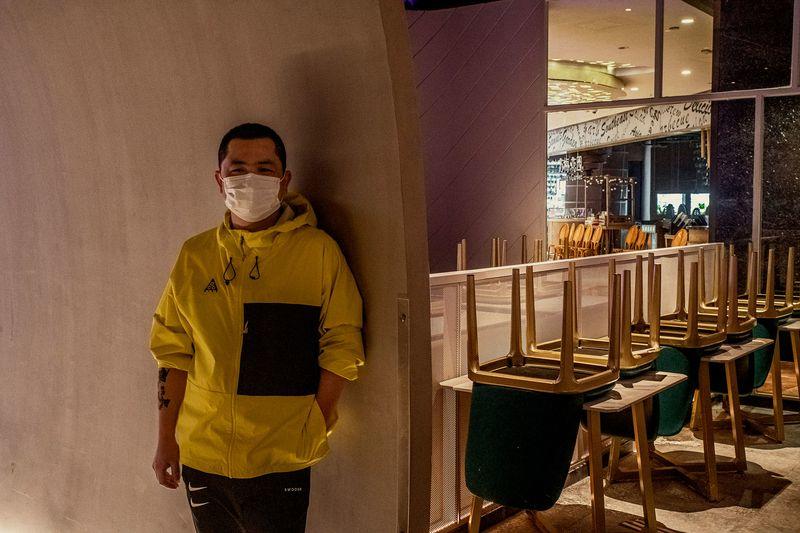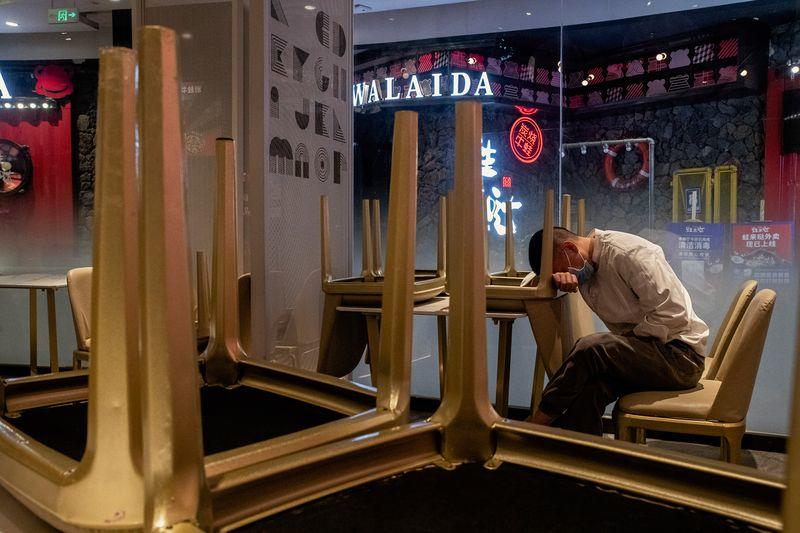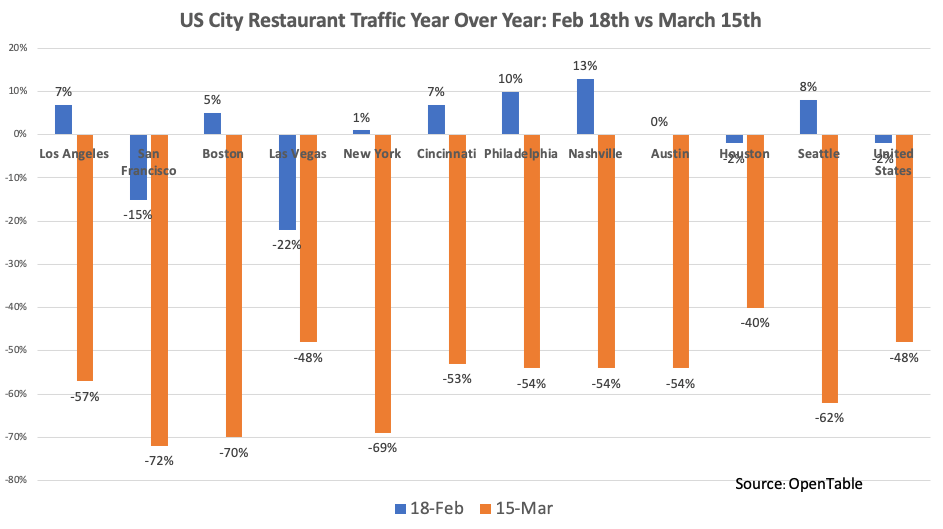Wuhan Reopening Spells Trouble For A World Emerging From Lockdown
Residents of Wuhan, China – the epicenter of the global pandemic which has killed more than 150,000 people in roughly four months – are now free to venture out after more than two months of home confinement in the largest quarantine in human history.
Unfortunately for local restaurants, the lifted restrictions haven’t translated to desperately needed customers, as residents are still subject to curbs on their movements such as temperature checks before one can enter a building, and people are still being encouraged to limit travel to essentials – such as work and shopping.
Restaurant owner Xiong Fei says that the end of the lockdown hasn’t brought relief – just a new set of challenges, according to Bloomberg. According to Xiong, people have changed their behavior, perhaps for good.

Photographer: Gilles Sabrie
“People in the past dined out with their colleagues in their lunch hour, now they’re all getting lunchboxes,” he said, sitting in an empty booth at his Sichuan restaurant. “They’re more likely to cook at home than go out.“
Of the 10 restaurants Xiong’s company, Bainianfeng Catering Management Co., operated before the outbreak, none have reopened for dining in. And while three have resumed making food deliveries, Xiong has already decided to shutter three other locations for good because he expects fewer customers. Now the 40-year-old entrepreneur and his business partners are trying to decide what to do long term. Half of Bainianfeng’s restaurants were hotpot joints, where groups of diners cook raw meat and vegetables in communal pots of boiling broth—the sort of places customers now are likely to avoid. “There will be a significant downturn in consumption,” Xiong says, predicting the city’s hospitality scene will see a shakeout. –Bloomberg
“I knew restaurants would be the most heavily affected,” said Xiong, whose restaurants had already been largely closed before the lockdown due to the mysterious new pneumonia which had been circulating since late December. “I also worried about our workers’ health.”

Photographer: Gilles Sabrie
And while perhaps Wuhan residents simply don’t trust their goverment’s “all clear” – Xiong’s experience portends continued pain for restaurants around the world currently shuttered or suffering from a lack of foot traffic due to COVID-19.
Last week, Gallup revealed that more than 80% of Americans will wait to return to normal activities after restrictions are lifted. Of that, 71% will wait to see what happens with the virus, while 10% will wait indefinitely.
What’s more, The Spoon‘s Michael Wolf noted on March 17 – right as the lockdowns went into place, that New York city restaurant traffic was already down 17% before the lockdown.
New York City’s restaurant traffic was down by 69%, while Seattle’s restaurant traffic had dropped by 62%. Despite being two of the earliest hotspots, these were not the biggest drops. San Francisco restaurant traffic was down by 72% on Sunday compared to a year earlier, while Boston’s traffic was down 70%. -The Spoon (Mar. 17)
According to UBS, restrictions in the EU and US will be lifted starting as early as May in the ‘upside’ scenario, and as late as June or July in the ‘downside’ scenario, with consumer activity estimated to rebound – as defined as a “sustained return to a level 20% below the pre-crisis baseline, or higher” – between June 2020 and June 2021.
A lot of the conversations I have been having with traders is about what to watch post peak coronavirus. Here’s a useful table via @UBS on scenario descriptions and criteria for the EU and US pic.twitter.com/EUo9Nr7Fdn
— Anthony Cheung (@AWMCheung) April 16, 2020
Making the best of a bad situation
One of Xiong’s companies, a catering business called Bainianfeng, has sought refuge in meal deliveries – though when the lockdown went into place, it was difficult to safely source and transport ingredients which were spiking in price as supplies dwindled. Meanwhile, his staff was greatly reduced, as most were too afraid to show up to work, or were restricted from leaving their homes.
Before the outbreak, people would stand in line for 40 minutes on weekends to get a seat at Xiong’s more popular spots. But under lockdown, he was lucky to get 20% of the orders he used to receive via delivery apps such as Alibaba Group Holding Ltd.’s Ele.me and Meituan Dianping, another backed by Tencent Holdings Ltd. To draw more diners, Xiong’s three operating restaurants are offering to deliver food to any location in the huge city, even if it takes hours. The online platforms take 20% of sales, but “we don’t dare to increase our prices because people will complain,” Xiong says.
And while his businesses are dying on the vine, Xiong is getting scrappy – importing high-tech food packaging machines from Taiwan to resell to other restaurants, and embarking on a livestreaming channel featuring his cousin cooking in one of his restaurants and eating the food.
“There definitely will be restaurants sifted out,” he said, adding “The market just follows natural selection, and only the fittest will survive.”
Tyler Durden
Sat, 04/18/2020 – 11:50
via ZeroHedge News https://ift.tt/3afV42h Tyler Durden

